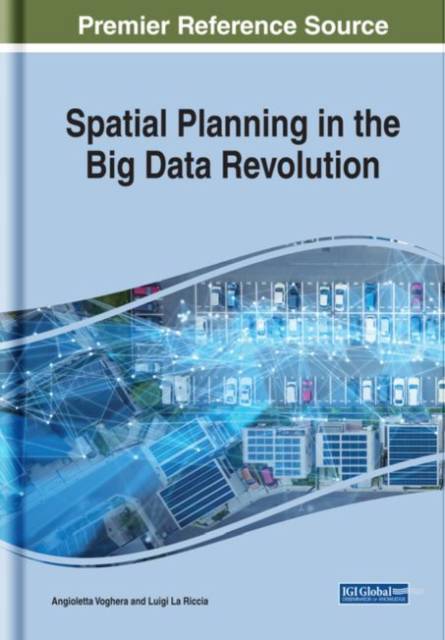
Bedankt voor het vertrouwen het afgelopen jaar! Om jou te bedanken bieden we GRATIS verzending (in België) aan op alles gedurende de hele maand januari.
- Afhalen na 1 uur in een winkel met voorraad
- Gratis thuislevering in België vanaf € 30
- Ruim aanbod met 7 miljoen producten
Bedankt voor het vertrouwen het afgelopen jaar! Om jou te bedanken bieden we GRATIS verzending (in België) aan op alles gedurende de hele maand januari.
- Afhalen na 1 uur in een winkel met voorraad
- Gratis thuislevering in België vanaf € 30
- Ruim aanbod met 7 miljoen producten
Zoeken
Spatial Planning in the Big Data Revolution
€ 255,95
+ 511 punten
Omschrijving
Through interaction with other databases such as social media, geographic information systems have the ability to build and obtain not only statistics defined on the flows of people, things, and information but also on perceptions, impressions, and opinions about specific places, territories, and landscapes. It is thus necessary to systematize, integrate, and coordinate the various sources of data (especially open data) to allow more appropriate and complete analysis, descriptions, and elaborations. Spatial Planning in the Big Data Revolution is a critical scholarly resource that aims to bring together different methodologies that combine the potential of large data analysis with GIS applications in dedicated tools specifically for territorial, social, economic, environmental, transport, energy, real estate, and landscape evaluation. Additionally, the book addresses a number of fundamental objectives including the application of big data analysis in supporting territorial analysis, validating crowdsourcing and crowdmapping techniques, and disseminating information and community involvement. Urban planners, architects, researchers, academicians, professionals, and practitioners in such fields as computer science, data science, and business intelligence will benefit most from the research contained within this publication.
Specificaties
Betrokkenen
- Uitgeverij:
Inhoud
- Aantal bladzijden:
- 320
- Taal:
- Engels
- Reeks:
Eigenschappen
- Productcode (EAN):
- 9781522579274
- Verschijningsdatum:
- 15/03/2019
- Uitvoering:
- Hardcover
- Formaat:
- Genaaid
- Afmetingen:
- 178 mm x 254 mm
- Gewicht:
- 907 g

Alleen bij Standaard Boekhandel
+ 511 punten op je klantenkaart van Standaard Boekhandel
Beoordelingen
We publiceren alleen reviews die voldoen aan de voorwaarden voor reviews. Bekijk onze voorwaarden voor reviews.








